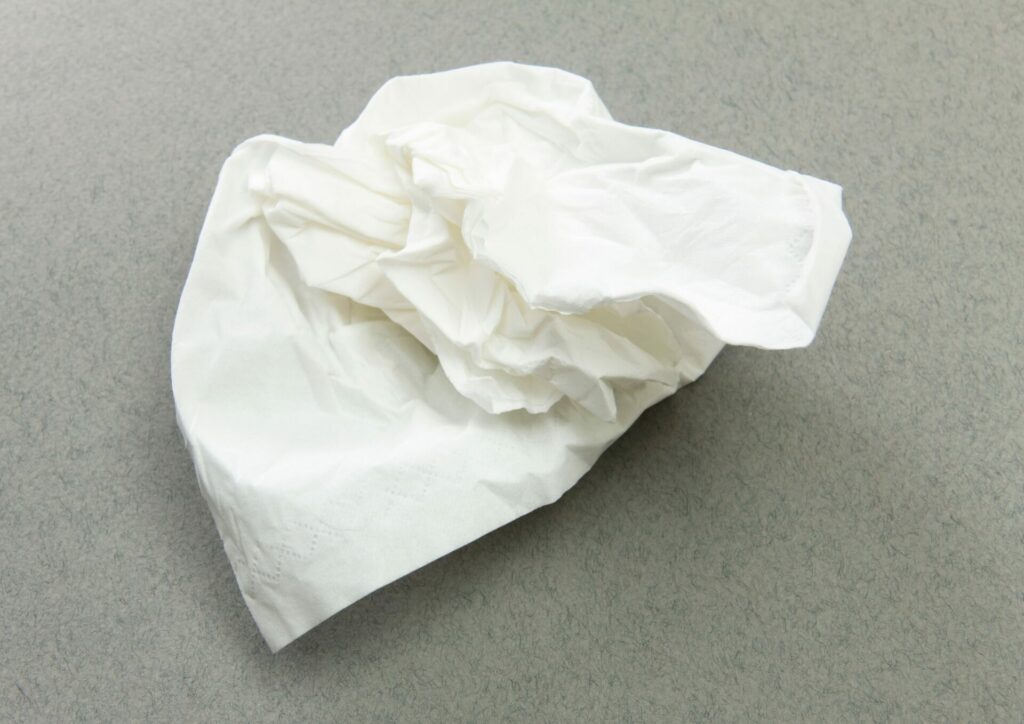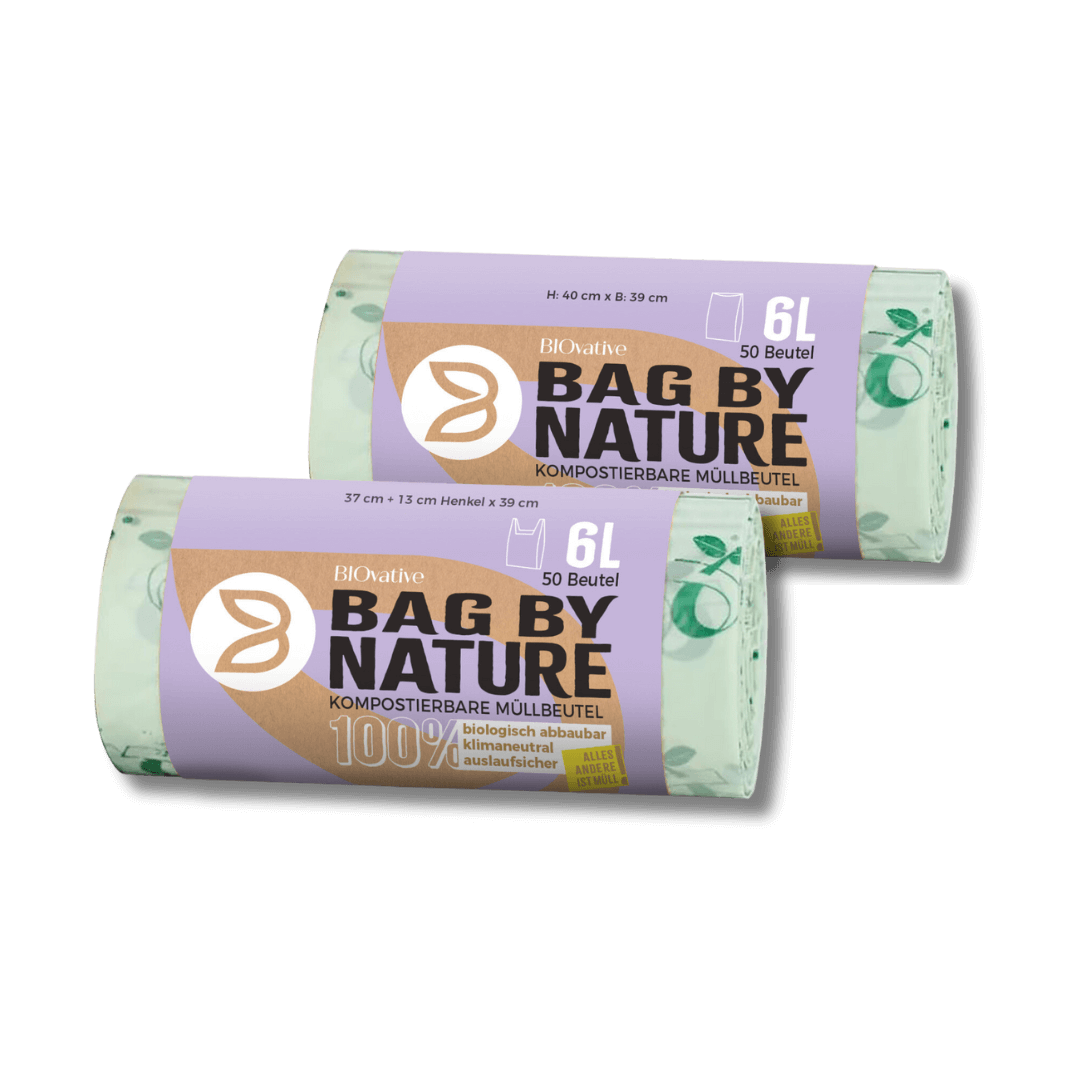Glossary » tissues
tissues
Tissues in organic waste - Allowed or Not?
A difficult question that almost everyone has probably asked themselves at some point. We found out for you. According to a recommendation by the BMUV (German Federal Ministry for the Environment, Nature Conservation, Nuclear Safety and Consumer Protection), used tissues belong in the residual waste and should not be disposed of in organic waste or waste paper. Why? Let’s take a closer look here:

Basically, paper tissues are made from an organic material, namely cellulose, which is obtained from wood fibers. In theory, unused tissues would therefore be suitable for organic waste, as they can be biodegraded and are therefore compostable. However, handkerchiefs rarely end up in the bin unused.
Dispose of used tissues correctly
Most tissues come into contact with various substances during their use, which can affect their suitability for organic waste. They are often used to wipe nasal fluids or absorb saliva. In these cases, it is generally safe to dispose of used tissues in organic waste, as they are natural, organic substances that can be composted without any problems.
However, it becomes problematic when tissus come into contact with other substances. These include, for example, cosmetics, medicines, chemicals or paints. Such substances can disrupt the composting process or even contaminate the entire compost. In this case, the used tissues should never be disposed of in the organic waste, but in the residual waste.
Highly greasy or oily residues on tissues can also be problematic for organic waste. Although vegetable and animal fats are generally biodegradable, in larger quantities they can slow down or even inhibit the composting process. They also attract vermin and rats, which is undesirable in composting facilities. Therefore, very greasy or oily tissues should also be disposed of in the residual waste.
Another aspect that plays a role when disposing of tissues in organic waste is any additives that are added to the paper. Some manufacturers treat their tissues chemically to make them softer, more absorbent or more tear-resistant, for example. These additives can also impair the composting process.
What now - Tissues in organic waste - Yes or No?
In summary, it can be said that disposing of tissues in organic waste is perfectly possible, but not always recommended. Unused tissues or tissues that have only come into contact with harmless, organic substances such as nasal secretions or saliva can be thrown into the organic waste bin without any problems. However, if they have been contaminated with chemicals, medication, paint, grease or oil, they should be disposed of in the residual waste.
If in doubt, it is therefore advisable not to dispose of used tissues in organic waste in order to avoid contaminating the compost. Environmentally conscious consumers could instead opt for reusable alternatives such as (cloth) handkerchiefs or tissues made from pure cellulose without additives. This not only reduces the consumption of disposable products, but also makes it easier to dispose of them correctly in organic waste.
Discover our products
Compostable bin liners
For clean and sustainable disposal of your organic waste






